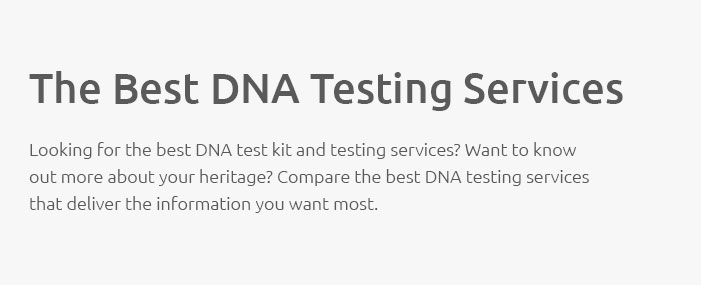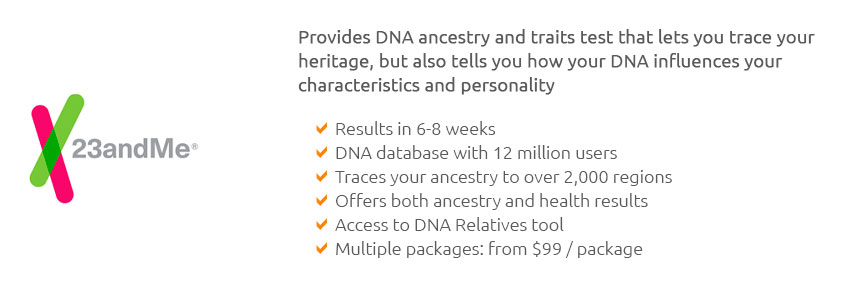 |
 |
 |
|---|
 |
 |
|---|
 |
|
|---|---|
 |
 |
 |
 |
 |
 |
 |
 |
 |
 |
 |
 |
 |
 |
 |
 |
|---|
How Accurate Are DNA Tests?In recent years, the surge in popularity of DNA testing has sparked widespread interest and curiosity. With the promise of uncovering ancestral origins, familial connections, and potential health risks, these tests have become a staple in both personal and medical realms. But how accurate are these DNA tests really? Let's delve into the intricacies of this fascinating topic, considering both their strengths and limitations. Understanding the Basics: At its core, a DNA test examines the genetic material within our cells, which holds vital information about our genetic makeup. The accuracy of these tests largely depends on the type of test conducted and the technology used. Broadly, DNA tests fall into categories like ancestry testing, health-related testing, and paternity testing. Each serves a distinct purpose, and their precision can vary significantly. Ancestry Testing: Companies such as 23andMe and AncestryDNA offer ancestry tests that claim to trace your lineage back through generations. These tests analyze your DNA to provide a percentage breakdown of your ethnic background and identify potential relatives. While these results can be intriguing, it's important to approach them with a degree of skepticism. The accuracy of ancestry tests can be influenced by the size and diversity of the company's database; a larger, more diverse database often yields more reliable results. However, since these databases are constantly evolving, the results can change over time as more data becomes available. Health-Related Testing: When it comes to health-related DNA tests, the stakes are undeniably higher. These tests aim to identify genetic predispositions to certain health conditions, ranging from breast cancer to Alzheimer's disease. While they can offer valuable insights, they are not without their limitations. The predictive power of health-related DNA tests is often contingent upon the current state of genetic research. Many health conditions are influenced by multiple genes and environmental factors, making it difficult to draw definitive conclusions based solely on genetic information. Therefore, it's crucial to interpret these results in consultation with a healthcare professional. Paternity Testing: Paternity tests are renowned for their high accuracy, often exceeding 99.9%. These tests compare the DNA of a child with that of a potential father to establish biological relationships. Given the straightforward nature of this comparison, paternity tests are considered highly reliable. However, it's worth noting that errors can occur if the test is not conducted properly, emphasizing the importance of using a reputable laboratory. Factors Affecting Accuracy: Several factors can influence the accuracy of DNA tests. The quality of the sample, the methods used for analysis, and the interpretation of the results all play crucial roles. Contamination of the DNA sample can lead to erroneous results, highlighting the necessity for proper collection and handling. Additionally, the complexity of genetic data means that results can sometimes be misinterpreted, especially when it comes to health-related tests. Practical Considerations: For those considering a DNA test, it's vital to weigh the benefits against potential drawbacks. While these tests can provide valuable insights, they also raise questions about privacy and data security. Before proceeding, it's advisable to research the company's privacy policies and data handling practices. Furthermore, one should remain aware that DNA results can impact not only the individual tested but also their relatives, potentially revealing sensitive information that may affect family dynamics. In conclusion, while DNA tests offer a glimpse into our genetic blueprint, their accuracy is not absolute. The key is to approach them with informed caution, understanding that while they are powerful tools, they are not infallible. By maintaining a balanced perspective and consulting professionals when necessary, individuals can make the most of what DNA testing has to offer, all while navigating the complex landscape of genetic information responsibly. https://m.youtube.com/watch?v=p8-lCy6v4Jo&t=0s
How accurate is DNA testing for ancestry? Can a DNA test be wrong? What DNA tests get wrong? This video helps you know when and if DNA test ... https://www.washingtoncountymn.gov/faq.aspx?TID=33
DNA testing is very accurate and will indicate either a probability of paternity greater than 99.9% (inclusion) or 0% (exclusion). 4. At what age can children ... https://www.quora.com/How-accurate-are-results-from-an-ancestry-DNA-test-What-are-some-mistakes-that-might-be-made-when-interpreting-the-results
How accurate? The TEST itself is almost 100% accurate in that this is an accurate digital representation of YOUR DNA. And that means any DNA ...
|
|---|